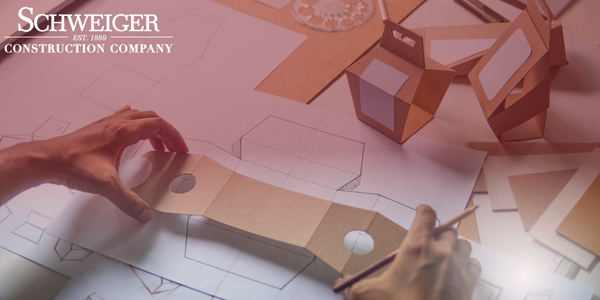The retail industry is transforming at a great pace, driven by evolving consumer behavior and preferences. With the rise of e-commerce and shifting demographics, retailers are rethinking the role of physical stores and how to create engaging environments that draw in customers.
This landscape presents both challenges and opportunities for construction companies like Schweiger Construction. As retailers reimagine their brick-and-mortar strategies, there is a growing demand for spaces that are flexible, technology-enabled, and centered around delivering exceptional customer experiences.
Experience-First Mentality
Traditional retail models are being upended by customers’ desire for engaging, memorable shopping experiences. A recent Deloitte study found that 59% of shoppers want an “experience” when they visit a physical store. They expect seamless integration of digital and physical elements, personalized service, and dynamic spaces that can flex to host events or pop-ups.
Savvy retailers are catching on, transforming their stores into experiential hubs. Schweiger is at the forefront, collaborating with clients to design fluid commercial spaces with modular fixtures, multipurpose areas, and ample room for brand activations. Our deep retail expertise allows us to suggest innovative solutions like interactive digital displays, seamless omnichannel integrations, and customized sensory elements (lighting, aroma, sound).
Rather than the transactional, big-box stores, many retailers are favoring more intimate spaces that allow for greater personalization and customer interaction. This requires construction companies to be adept at maximizing space efficiency while still creating an inviting ambiance.
Consumers, especially younger demographics, are seeking out destinations that offer more than just transactional shopping. They want to be entertained, educated, and able to interact with products in immersive ways. Construction projects must account for open layouts, flexible staging areas, and indoor/outdoor integration that allows retailers to craft dynamic experiences.
Prioritizing Adaptability, Customization
Flexibility and future-proofing are critical in today’s rapidly shifting retail arena. That’s why it’s important to emphasize modular, adaptable designs that can pivot as consumer trends evolve. Spaces should be optimized for effortless renovations and reimagining, minimizing downtime and protecting clients’ investments.
With consumer tastes and trends evolving rapidly, retail spaces need to be designed for adaptability. Movable walls, reconfigurable layouts, and multi-purpose areas allow retailers to pivot strategies and refresh the customer experience regularly.
The rise of pop-up shops and micro-retail formats also necessitates modular construction approaches. Brands are leveraging smaller, more curated locations to test concepts and bring unique shopping adventures to customers. Easily reconfigured spaces are key.
Technology integration is also essential in today’s retail environments. From interactive digital displays to seamless online/offline shopping capabilities and mobile checkout solutions, the physical and digital must coexist seamlessly. Construction teams need to collaborate with technology partners and envision the desired customer journey from the start. Data-driven design ensures the infrastructure can support ever-evolving consumer touchpoints.
Collaborative Approach for Success
To successfully navigate this landscape, construction companies must work hand-in-hand with retailers and designers from the outset. A collaborative approach that aligns the client’s vision with construction expertise is vital to creating spaces that meet the demands of the modern consumer.
At Schweiger Construction, we pride ourselves on our ability to tackle complex retail projects with creativity and precision. Our team stays ahead of industry trends, embracing sustainable building practices and cutting-edge construction methods to deliver dynamic spaces that captivate and inspire.
In today’s dynamic retail climate, creating engaging physical spaces is crucial for driving sales and bringing innovative retail concepts to life. By embracing experience-driven design philosophies, construction partners play an important role in helping retailers craft innovative, immersive environments that meet evolving customer demands.





